
When it comes to choosing a new smartphone, hardware features are important —the display size, CPU and camera image sensor are always something to consider. The operating system is arguably an even more important choice. Right now there are four main mobile operating systems: iOS, Android, Windows and BlackBerry. Not sure which one should be on your next smartphone? I’m heere to help you choose.
Last week, I put together a round-up of 10 of the biggest smartphone releases of 2014. Be sure to check that post out if you’re wondering how the different devices stack up in terms of hardware.
This time it’s all about the operating system, the software that powers the smartphone. The operating system determines key functionality and determines how much freedom you as a user have to modify or customize your user experience. The operating system also determines what apps —and what app store— you can use. And this is important, especially if you have a library of purchased apps or intend to buy apps going forward. You can switch your smartphone, but once you start buying apps for one mobile operating system, you are essentially locked in.
In other words, if you have a collection of Android apps you bought on your Galaxy S3, you can upgrade to another Android smartphone —it doesn’t have to be made by Samsung— but if you switch to iOS or Windows Phone, you won’t be able to use the apps you bought. You’ll be starting from scratch.
That’s why I feel the operating system is the most important choice you’ll make as part of a smartphone purchase.
Here’s a quick overview of each of the four top mobile operating systems.
Based on the QNX industrial operating system acquired by BlackBerry in 2010, BlackBerry 10 is the touch-enabled software that powers the latest BlackBerry devices, starting with the Z10.
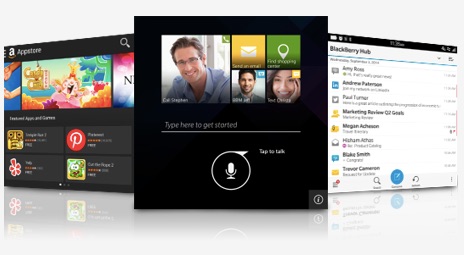
BlackBerry 10 is considered a very friendly operating system for business and professional users. It currently holds roughly 1% of the market for smartphones, reflecting the fact that it’s not as popular with average users.
BlackBerry 10 runs only on BlackBerry devices. Users are able to install and run apps from BlackBerry World, the company’s own app store. BlackBerry 10 now supports Android apps with the latest version (10.3) offering support for apps compatible with Android 4.3 and coming with the Amazon Appstore pre-installed. Thanks to that Android compatibility, the relatively poor selection of apps available through BlackBerry World is less of an issue now than it was at launch.
Of course BlackBerry is renowned for security –so if you are concerned about your data, a BlackBerry 10 smartphone may be the right choice.
Google’s Android is an open source operating system, although an increasing number of components are proprietary. Google allows smartphone manufacturers to install Android at no charge and is by far the most popular mobile operating system with a commanding 85% of the global smartphone market.
In other words, if you buy a smartphone this year, there’s a really good chance that it’s going to be an Android device.
Android has a reputation for being more open and accessible for users. If you like to tinker with your smartphone and know what you’re doing, Android is the best choice. If you like to tinker but don’t really have the know-how to back that up, Android is the kind of operating system you could accidentally mess up.
Android’s open approach has also made it the subject of more malware attacks than any other mobile platform.
New versions of Android are usually available first for Google’s own Nexus devices; after that, it’s up to device manufacturers to roll out updates. As a result, non-Nexus devices may experience delays and smartphones that are several years old may never receive the update.
Key features include Google Now, a contextually aware artificial asistant that provides information based on your location, schedule and presonal preferences.
The primary app store for Android is Google Play, now the world’s largest app store.
Apple doesn’t license iOS, its mobile operating system. That means the only smartphones you can use iOS on are iPhones. That restriction has helped limit the global iOS market share, which currently sits at 11%.
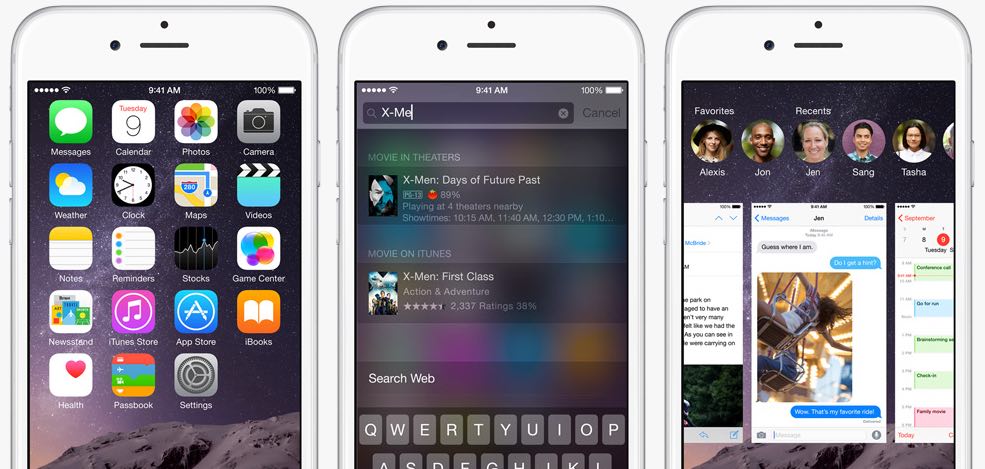
When it comes to a polished, user-friendly experience, iOS shines. Apple has slowly added customization options, but the operating system is often described as a “walled garden.” The inability to modify iOS (to the point that key Apple apps can’t be deleted from an iPhone) has driven many power users to Android, but the approach makes an iPhone ideal for someone who just wants things to work. It has also helped protect iOS users from malware.
App availability for iOS is excellent (it was only recently surpassed by Google Play and iOS remains the preferred launch platform for many premium apps). Key features include Siri and CarPlay integration with comaptible vehicle entertainment systems.
When Apple rolls out iOS updates, all compatible iPhones are immediately able to download the update, which leads to iOS usually having the highest percentage of users running its most recent version.
Microsoft’s Windows phone is the smartphone version of its Windows 8 operating system.
Currently holding a 3% world market share, Windows Phone is found on Microsoft’s recently acquired Lumia smartphones and devices from a few other manufacturers —for example, HTC has recently released a version of its popular HTC One M8 smartphone running Windows Phone instead of Android.
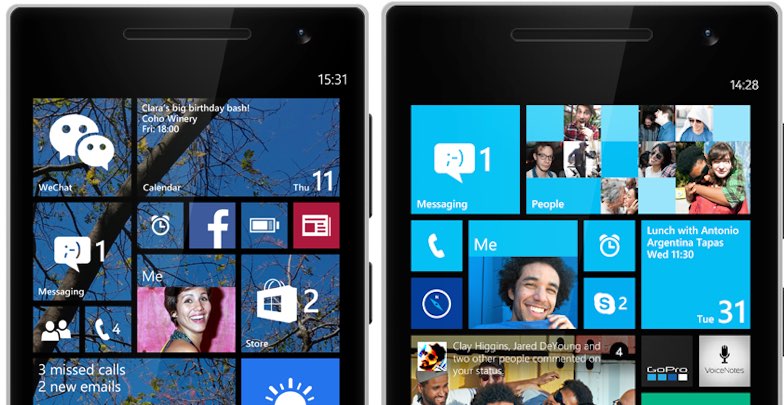
App selection for Windows Phone devices is significantly lower than Android or iOS, but adoption has been growing and that has helped spur developer interest.
Finally, to help you eyeball the key differences between the four, I’ve put together a chart showing some of the more important information to keep in mind.
| Android | iOS |
Windows Phone |
BlackBerry 10 |
| Published by Google | Published by Apple | Published by Microsoft | Published by BlackBerry |
|
85% Market Share |
11% Market Share | 3% Market Share | 1% Market Share |
|
Most recent version Android 5.0 (Lollipop) |
Most recent version iOS 8.1.1 |
Most recent version Windows Phone 8.10.14141.167 |
Most recent version 10.3 |
|
Percent of smartphones running Android 5.0: Under 1% |
Percent of smartphones running iOS 8: 63%: |
Percent of smartphones running Windows Phone 8.1: 51% |
Percent of smartphones running BB10.3: estimated at 10% |
|
Release Frequency: Yearly major release, updates as needed |
Release Frequency: Yearly major release, updates as needed |
Release Frequency: Two years between Windows 8 and Windows 8.1, frequent updates |
Release Frequency: Yearly major release, updates as needed |
|
Intelligent Assistant: Google Now |
Intelligent Assistant: Siri | Intelligent Assistant: Cortana |
Intelligent Assistant: BlackBerry Assistant |
| Primary App Store: Google Play (1.3 million apps) |
Primary App Store: Apple App Store/iTunes (1.2 million apps) |
Primary App Store: Windows Phone App Store (300,000 apps) |
Primary App Store: BlackBerry World (130,000 apps), Amazon Apps Store (240,000 apps) |
|
Massive smartphone choice (Android phones from Samsung, Sony, HTC, GoogleLG and others) |
Smartphone choice limited to Apple iPhones |
Smartphone choice largely limited to Microsoft/Nokia |
Smartphone choice limited to BlackBerry devices |

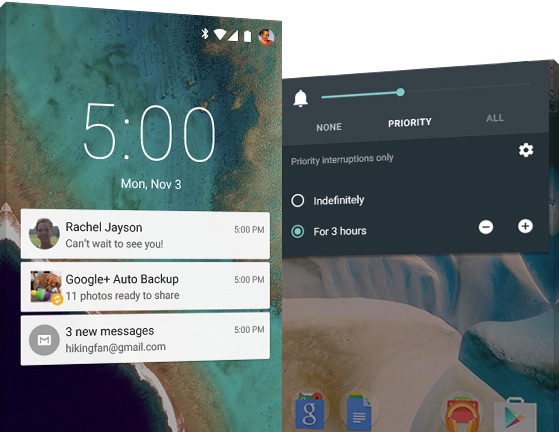 Android
Android 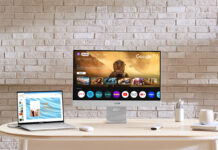


fyi…. I agree the AZ app store is limited on the Blackberry. However with Snap, I can run most apps from the Blackberry App Store.
Love my keyboard…
https://www.youtube.com/watch?v=IgQmt5N4mc4
Comments are closed.